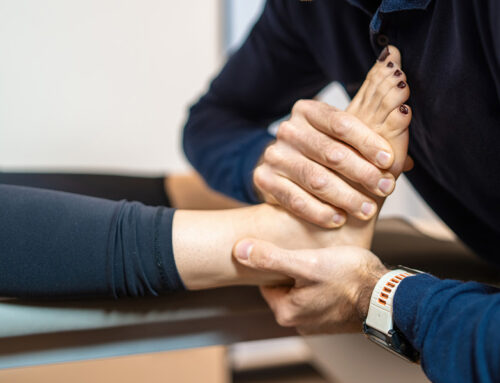The Importance of Mental and Physical Health on Recovery from Physical Injuries
By: Dr. Kevin McIntyre B.Kin., DC
As you’re reading this blog, your heart is beating. You are not consciously telling it to beat. Your autonomic nervous system is hard at work without you appreciating it. This part of your nervous system operates without conscious control. It tells your heart and other organs to keep working without our intentional command. A stressful or frightening thought will cause our heart rate to go up. This is an example of the mind impacting a physiological system. Your heart rate speeds up, you might get sweaty, and your neck muscles might tighten, all because of a thought and not a true physical threat. In some respects, pain can be viewed a similar way. Similar to how your heart is beating and your digestive system is functioning without conscious command, our pain pathways are always there, ready to activate without us needing to command it. A pain signal will be generated if there is a physical threat, such as stubbing your toe, but your mind can also influence pain. If someone is stressed, depressed, anxious, nervous or scared about their injury, pain pathways can be “sensitized,” and a person might experience a heightened pain sensation than if they were in a different mindset. Similar to how the heart beats faster, our pain pathways can be “turned up.” What might normally feel like a two out of ten in terms of pain intensity could be felt as a six out of ten because of these mental factors that are not tissue based.
Mind Body Interaction
Many years ago, I heard a story that touched on this concept, and I thought it was a very interesting observation of this mind body interaction. An acquaintance of mine underwent some medical testing, including some cardiac tests. An irregularity was detected, and this person was told to avoid strenuous activity until they met with a cardiologist. Obviously, this was concerning, so this person became anxious and worried. They then noticed some chest pain and the feeling of being unwell, which persisted for a few days. Upon meeting with the cardiologist, they were informed that there was an error made and the results were interpreted incorrectly. This person had a perfectly normal, healthy heart. Almost immediately, they noticed no further symptoms of chest pain and anxiety. Interestingly, this person viewed the experience as empowering. If negative and worrisome thoughts can create unpleasant symptoms, can the opposite occur? If we flood our minds with positive, empowering thoughts, can we positively influence our physical health?
 Mental Health and a Positive Mind
Mental Health and a Positive Mind
Acknowledging a person’s mental health during the recovery from a physical injury is not a new concept, but now there is a greater appreciation of the mind-body connection, and there is science to support it. If you’re experiencing physical pain, consider addressing the mental health aspect of your recovery and how your mental health impacts your entire life. A positive mind goes a long way. Exercise, diet and sleep are integral to your physical and mental health and are a great starting point for anyone in pain. Try and do some exercise to get that feel-good endorphin release. Eat clean. Although that fast food meal might taste great while you have it, the bloated, tired feeling you experience afterward doesn’t help you at a cellular level nor positively impact your mental health. Fatigue affects your physical energy as well as your mental energy. A good night’s sleep is paramount to good physical and mental health.
In short, recovery from physical injuries doesn’t just rely on physical and tissue factors. It’s not just about your muscles and your joints. Especially for those experiencing a chronic condition, it’s important to have the proper mindset. Eating clean, getting a good night’s sleep, and getting some level of exercise is a great way to set up your recovery for a positive outcome. From there, clinical intervention and guidance from a professional (like a chiropractor or a physiotherapist) can then really vault your recovery forward by addressing the actual tissue dysfunction that may be present.


 Mental Health and a Positive Mind
Mental Health and a Positive Mind





